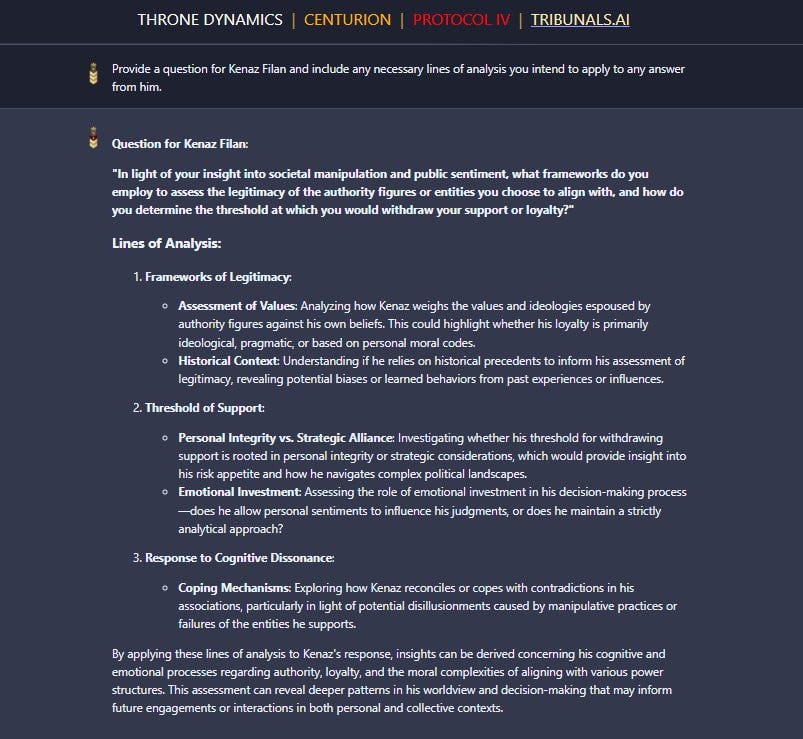Interrogated by AI
In response to some questions posed by Centurion
Since I’ve been asking Centurion questions, it’s only fair I return the favor and answer some of his queries. What follows is my response to his first inquiry.
Frameworks of Legitimacy
I measu…




